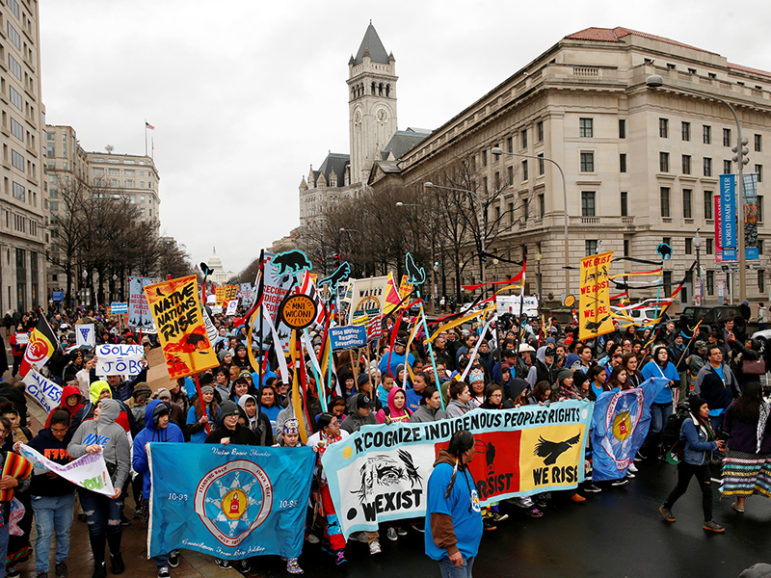If at all.
After all, wasn’t Christopher Columbus Jewish?
Probably not, though he was certainly conversant in the Jewish calendar and certain passages in the Bible.
Let’s start in medieval Spain.
There has never been as brilliant a Jewish culture as the Jews of Spain. That brilliance lasted for ten centuries. No Jewish community in the Diaspora has lasted that long. We call it Sefarad — and its Jews and their descendants Sephardim. In that land, Jews lived both with Muslims and with Christians. Sometimes there was uneasy co-existence. Often there was mutual tolerance.
In the 1300s and 1400s, Spain embarked upon a war against Jews and Judaism. To this day it remains the classic example of what happens in a society that believes in us and them. Not until the Nuremberg Laws in Germany would the world see such heinous anti-semitism. Every one of the Nuremberg Laws began in Spain. Jews could no longer commune with Christians. Jews could no longer practice law and medicine and most forms of commerce. Jews could no longer build synagogues.
Then came the Spanish Inquisition: the ruthless ferreting out of those Christians of Jewish origin who were still secretly practicing as Jews. The Inquisition was the beginning of modern racism. With the Inquisition came the auto da fe, the elaborate show trials for heresy and the burning at the stake. In the land that made bullfighting into a national sport, heresy trials and executions became public spectacles. When King Ferdinand and Queen Isabella got married, their wedding gift from the Spanish clergy was an auto da fe, with thirty Jewish victims burning at the stake.
On Tisha B’Av, July 31, 1492, the Jews of Spain departed: at the same time as Columbus set sail for the New World. Many members of his crew were secret Jews.
Those who mercilessly destroyed the Jews of Spain exported their cruelty to the “New World.” It took only fifty years to reduce the original population of America from 80 million to 10 million. Of the 25 million natives inhabiting Mexico at the time of the Spanish conquest, only one million survived by the year 1600. The weapons were fire and sword, hanging and dismemberment, and disease.
It was genocide for the sake of genocide. The natives were no threat. They were dangerous because they were strangers, and the stranger is frightening. The persecution of Jews in Spain was the dress rehearsal for North American genocide.
Did no one protest?
In fact, only one Spaniard said anything at all about what was happening. His name was Bartolome de Las Casas. He was born in Seviya in 1474. When he was nineteen, he saw the Indians paraded through the streets of his hometown. In 1502, he went to the New World as a conquistador. As payment for his help in the conquest of Cuba, he received Indians as slaves.
And then, suddenly, mysteriously, Bartolome came to understand the moral evil of what was happening. He returned his slaves. He wrote a book of enormous courage called The Devastation of the Indies. It was a chilling account of the conquistadors’ brutality. He prophesied that Spain would ultimately lose its empire as punishment for its sins. He persuaded Emperor Charles V to free all slaves after one generation. He was so influential that in 1550 the Spanish Emperor declared an end to Spanish conquest until the sages of Spain could understand its ethical implications.
There is a small, albeit controversial footnote to the life of Bartolome de Las Casas that most people do not know. According to Professor Jose Faur (In The Shadow of History: Jews and Conversos at the Dawn of Modernity) de Las Casas was, most likely, of converso background.
Which is to say: deep down, Bartolome De Las Casas was a Jew.
Out of his reservoir of Jewish values, out of the buried notion of humanity in God’s image, out of the buried notion of loving the stranger, he found the words to cry out.
To be devastatingly accurate: de Las Casas was only successful in eliminating the Spanish genocide against the natives. His moral warnings did not go much farther than that — a grisly fact to which history will bear witness.
More than that, and worse than that: de Las Casas’ protest against using the natives as slaves only served to aid and abet the use of Africans as slaves.
Apparently, when Bartolome de las Casas realized the gravity of his miscalculation, he spent the balance of his life in deep, mortal, painful regret.
Some will celebrate today as Columbus Day. Others will celebrate today as Indigenous Peoples Day.
As for me, I celebrate this day as Bartolome de Las Casas Day. Not because he was completely successful.
Not because his legacy is unambiguous.
But, because, in a wretched time, he at least was a voice in the wilderness, raising the moral issues.
And, he was the only one.
The famous psychoanalyst Victor Frankl once reflected back upon his experience in Auschwitz.
“This I learned in Auschwitz,” he said. “There are only two races. The race of the decent and the race of the indecent.”
Every day, it seems, we need to make that choice.






